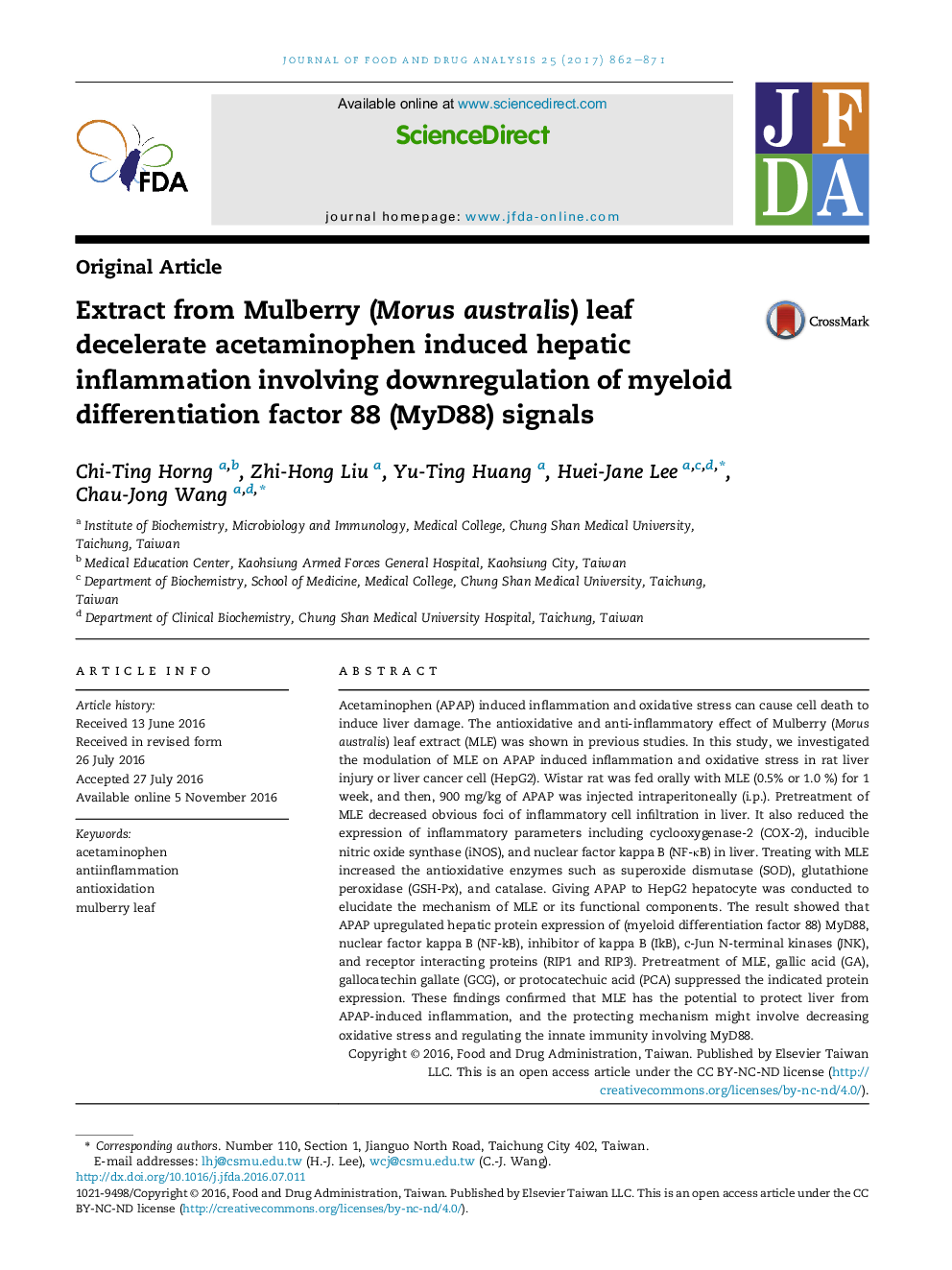| Article ID | Journal | Published Year | Pages | File Type |
|---|---|---|---|---|
| 5551000 | Journal of Food and Drug Analysis | 2017 | 10 Pages |
Acetaminophen (APAP) induced inflammation and oxidative stress can cause cell death to induce liver damage. The antioxidative and anti-inflammatory effect of Mulberry (Morus australis) leaf extract (MLE) was shown in previous studies. In this study, we investigated the modulation of MLE on APAP induced inflammation and oxidative stress in rat liver injury or liver cancer cell (HepG2). Wistar rat was fed orally with MLE (0.5% or 1.0 %) for 1 week, and then, 900 mg/kg of APAP was injected intraperitoneally (i.p.). Pretreatment of MLE decreased obvious foci of inflammatory cell infiltration in liver. It also reduced the expression of inflammatory parameters including cyclooxygenase-2 (COX-2), inducible nitric oxide synthase (iNOS), and nuclear factor kappa B (NF-κB) in liver. Treating with MLE increased the antioxidative enzymes such as superoxide dismutase (SOD), glutathione peroxidase (GSH-Px), and catalase. Giving APAP to HepG2 hepatocyte was conducted to elucidate the mechanism of MLE or its functional components. The result showed that APAP upregulated hepatic protein expression of (myeloid differentiation factor 88) MyD88, nuclear factor kappa B (NF-kB), inhibitor of kappa B (IkB), c-Jun N-terminal kinases (JNK), and receptor interacting proteins (RIP1 and RIP3). Pretreatment of MLE, gallic acid (GA), gallocatechin gallate (GCG), or protocatechuic acid (PCA) suppressed the indicated protein expression. These findings confirmed that MLE has the potential to protect liver from APAP-induced inflammation, and the protecting mechanism might involve decreasing oxidative stress and regulating the innate immunity involving MyD88.
Graphical abstractDownload high-res image (148KB)Download full-size image
